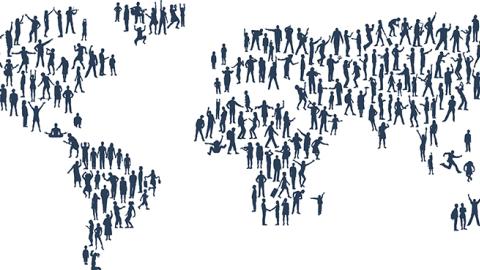The three-day shutdown in Washington shows the immigration issue remains potent. In 2016, it powered Donald Trump’s triumph over the Republican and Democratic establishments while tipping the U.K. referendum toward Brexit. Anyone who hoped voters would get it out of their systems must be sorely disappointed.
This weekend Washington ground to a halt as an impasse over “Dreamers” left the government without funding. In Germany, Angela Merkel, once the unchallenged master of European politics, is still struggling to form a coalition four months after leading her party to its worst election result since the 1940s. German politics has been so scrambled by Mrs. Merkel’s 2015 decision to admit one million Middle Eastern and Afghan refugees that the far-right Alternative for Germany is in the Bundestag for the first time.
What makes immigration radioactive? Partly it’s that no other issue, not even economic inequality, drives such a deep wedge between elite and mass opinion. Elites almost always support immigration on both economic and moral grounds. But many voters worry their neighborhoods will be exposed to the social consequences of mass immigration, and that their wages will decline as immigrants compete for jobs. To them, the failure of establishment politicians to control immigration looks like either incompetence or treachery.
The issue isn’t skilled migrants: Indian neurosurgeons and Chinese computer whizzes aren’t (yet) objects of populist wrath. Instead the fight is over three sometimes overlapping classes: unskilled immigrants who compete at the low end of the labor market; immigrants who are Muslims or from Islamic backgrounds, from whose ranks, it is feared, a small but dangerous terrorist minority may emerge; and illegal immigrants.
The movement of such “controversial” immigrants is unlikely to diminish anytime soon. Hundreds of millions of people from poor or developing countries want to come to the rich world. A child born to poor parents in Germany or the U.S. may face educational and economic obstacles, but he will have incomparably better health care, schooling, physical security and opportunity than a poor child in Honduras or Syria. In today’s networked age, people in undeveloped countries can see vividly how much better life can be in North America and the European Union.
In the Middle East in particular, the toxic cocktail of war, poverty, autocracy and radicalism exacerbates the push to emigrate. If anything, these problems are likely to worsen. High birthrates will create demographic pressure. Oil prices seem unlikely to recover to previous highs, despite the best attempts by the Organization of the Petroleum Exporting Countries. Stagnant oil revenue means fewer jobs and less social spending, which will amplify social pressures. Those in the West who hope to neutralize the immigration issue through aid and democratization efforts in the Middle East need to sober up: Those are generational projects that won’t do much to help in the relevant time frame.
Migration gets easier as immigrants establish communities in a recipient country—Turks in Germany, Moroccans in the Netherlands, Central Americans in the U.S. Later immigrants can move into neighborhoods where people speak their language and where they can look for help navigating the transition.
But even as the pressure on people in poor countries to emigrate increases, the economic case for rich countries to open their doors to low-skilled workers is getting weaker, thanks to automation. It can’t simultaneously be true that robots will take all the jobs and that the West needs millions of new immigrants to do the grunt work.
The politics of migration challenge both center-left and center-right parties. In the U.S., pro-Trump populist Republicans are estranged from the GOP establishment, while the Democratic establishment, militantly cosmopolitan and pro-migrant, hemorrhages support among blue-collar voters. European politicians are similarly flummoxed, as parties on the center left and center right both lose support to populists.
In the 19th century, migration into the U.S. and much of Europe was largely unregulated. As the flow of migrants increased, the doors slammed shut in one country after another. The United States imposed draconian restrictions in 1923, and not even the horrors of Hitler’s Reich persuaded Americans to make room for desperate refugees.
To avoid repeating these tragic events, immigration and refugee policy must find a sustainable middle ground between naive and unrealistic cosmopolitanism on the one hand and ugly nativism on the other. In a world where more people than ever are on the move, the window to head off nativist sentiments with pragmatic reform may be narrower than we think.


















